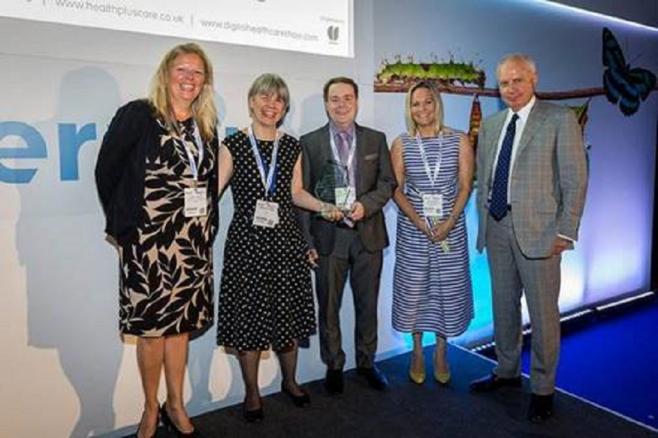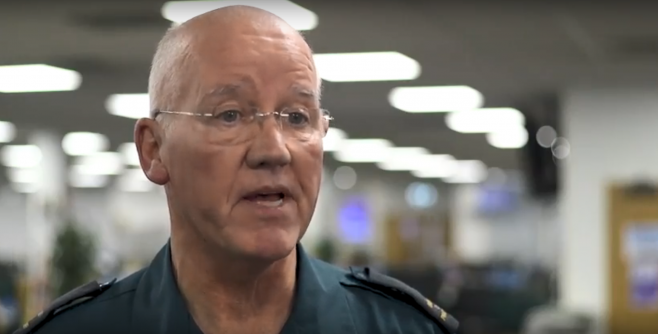
Rotating Paramedic Programme wins Innovation in Primary Care transformation award
2 July 2018
Health Education England‘s (HEE) Rotating Paramedic Programme has been awarded the ‘
Read MoreYou are here
We are piloting a new working model for specialist and advanced paramedics, enabling them to rotate through a variety of settings as one role - including primary care and community-based teams as well as within the ambulance service. The pilot is expected to improve patient care and support workload for each organisation involved.

Paramedics have a unique skill set which enables them to deliver care to patients across a variety of settings – making them a very valuable resource, not only for the ambulance service but equally for other parts of the NHS.
It is widely acknowledged that a large proportion of 999 calls resulting in an admission to hospital by ambulance could be avoided if paramedics or community teams were able to deliver definitive patient care at the scene. The pilot aims, therefore, to send the most appropriate healthcare professional, with the appropriate skill set, to offer definitive care to a patient – the right response, first time to 999 calls, primary and urgent care contacts.
The pilots are exploring whether a rotational model of working is feasible and economically viable. Specialist and advanced paramedics will work in Emergency Operations Centres within the ambulance service; community-based multi-disciplinary teams, and GP practices, on a rotational basis, bringing the skills and knowledge developed in each rotation, into the next.
In addition to developing these paramedics' skills set, the outcome of the pilots will be evaluated to establish how the new way of working can help to best deliver high quality patient experience and care and support the NHS to improve urgent and emergency care services.
We are working in collaboration with four ambulance services to pilot the rotating paramedic model – East Midlands, North East, South Central and Yorkshire ambulance services.
The first phase of the pilots has been evaluated by an independent University-led evaluation team. The evaluation concluded that:
“Rotating suitably qualified and experienced paramedics through a range of healthcare delivery settings is feasible and likely to herald benefits both in relation to recruitment and retention of Paramedics in ambulance services, as well as impacting on patient experience.
This approach to integrated healthcare delivery will improve inter professional and multidisciplinary team working as well as facilitating paramedics to fully utilise their extensive skill set, knowledge and expertise without depleting ambulance services’ workforce. This can only be of benefit to patient management, experiences and potentially patient outcomes.”
Read the evaluation reports, full and summary, at the bottom of this page.
Specialist and advanced paramedics work in the Emergency Operations Centre - sometimes referred to as the Ambulance Control Room or Clinical Contact Centre.
They identify high volume, high conveyance rate and low acuity 999 calls to the ambulance service that could be more appropriately managed by a member of the community multi-disciplinary team (MDT). This may be the specialist or advanced paramedic who is on that rotation or another member of the MDT such as a respiratory specialist for breathing difficulty calls or occupational therapist and physiotherapists for minor injury falls cases.
The specialist and advanced paramedics work on rotation in the community with the community multi-disciplinary team (MDT). This could be physically part of a team or working remotely with the response provided by the rotating paramedic or another member of the MDT who has more appropriate skills to give the right response.
The community MDT receives calls that have been identified by the rotating paramedic on rotation within the Emergency Operations Centre as being suitable for response by the most appropriate healthcare professional in the MDT; the most common of which may be lower acuity breathing difficulties, falls or diabetes crises.
The specialist and advanced paramedics on rotation within primary care, work with one or more GP practices contributing to planned activities within the practices. This could involve ‘same day’ home visits for patients who cannot attend the surgery; seeing and treating urgent or emergency patients; concentrating on care home activity; and running clinics for selected patient groups.
Patrick Mitchell, Regional Director, Health Education England said
“This is a really exciting opportunity to invest in and test out a new way of working that will have benefits for many parts of the NHS and, more importantly, for patients.
We are pleased to be investing in piloting these ways of working, and we look forward to seeing the results.”

2 July 2018
Health Education England‘s (HEE) Rotating Paramedic Programme has been awarded the ‘
Read More